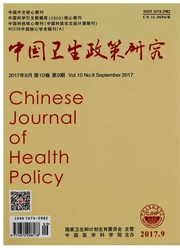

 中文摘要:
中文摘要:
药品安全是监管和技术命题,更具有深层次经济社会背景。近年来我国药品安全状况总体稳定向好,但多重问题叠加且系统性风险突出。以监管政治学理论为框架,系统分析药品安全问题中政府、产业、社会组织和消费者等利益相关方的行为及其关系。提炼出监管部门嵌入产业网络不深,"小生产与大市场"的结构性矛盾,消费者群体安全焦虑与个体风险漠视并存三大问题。在此基础上,建议从更新理念、合理化体制、扩展主体和优化手段四个方面,重构药品安全监管体系顶层设计,从而真正实现从传统政府监管向现代风险治理的转变。
 英文摘要:
英文摘要:
Drug safety is not only a regulatory and technical issue,but is also embedded in a socio-economic background. In recent years,the drug safety in China has been stable on the whole,but at the same time has seen various problems and systematic risks. Taking regulatory political theory as a framework,systematic analysis of drug safety problems in terms of government,industry,societal institutions,and consumers will be conducted. There are three problems that exist currently in China,including inadequate regulatory involvement in industry networks,the institutional dilemma of " small producers and big markets" ,and the coexistence of consumer group safety concerns and individual risk disregarding. On this foundation,it will be recommended that a four-pronged approach be taken of updating theories,standardizing systems,expanding influence,and improving methods,with the goal of restructuring the upper levels of the drug safety regulatory system. In this way,a true transformation from traditional government regulation,to a more modern risk government can be achieved.
 同期刊论文项目
同期刊论文项目
 同项目期刊论文
同项目期刊论文
 期刊信息
期刊信息
